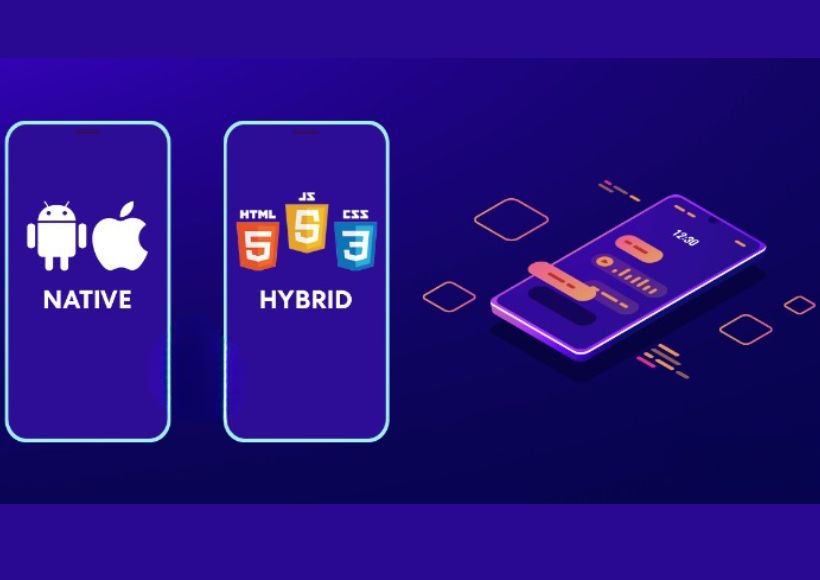Native or Hybrid Applications, Which One To Choose?

Native or Hybrid Applications: The development of mobile applications and the recurring question from clients is which option to choose? Have a native application or opt for the development of a hybrid application?
Before answering, we need to understand what each alternative is about. In this blog post, we tell you more about these types of applications and their benefits.
Table of Contents
Native apps
Native apps run directly on the phone’s operating system, be it Android or iOS. That is why the development for each platform is carried out independently and using technologies made to measure for said platforms.
When a technical proposal is received indicating that they will develop the Android mobile application using languages such as Kotlin or Java and the iOS application using Swift or Objective-C, it is clear that they refer to native development.
Hybrid applications
On the other hand, hybrid apps don’t run directly on the phone’s operating system but use an intermediate channel to run. This channel, in many cases, is the web browser.
For this reason, developing two independent applications is no longer necessary, but only one optimized to run in the browser. However, there must be the possibility of accessing some phone features.
Now that we have a clearer idea of both types of applications, let’s go on to detail the criteria we must consider to make a decision.
Criteria
Cost
If your first deciding factor is the budget, you already imagine which is the most economical. And yes, in many cases, a hybrid application is cheaper.
But you should consider that if your project tends to grow, you probably need to migrate your hybrid application to a native one. This means putting your hybrid app on the back burner and starting a new development of the native app. In this case, you will end up paying for both developments.
If your application has been used in a specific period, such as an event or hybrid development activation, it may be an option to consider.
Maintenance
Giving maintenance to your mobile application is extremely important if you want to be valid in the market and maintain the quality of your product.
This maintenance can be semi-annual or annual. And in those cases, it will be necessary to request the service of an agency or a developer again. Here comes the important thing: there are more developers on the market for native platforms than for hybrid ones.
If you already have a trusted agency, there won’t be much of a problem.
Technologies
The technologies used to develop any mobile application, whether native or hybrid, are a super crucial factor when deciding since it is strongly related to the maintenance and scalability that the application will have.
It would help if you opted for the most popular and stable technologies to have several options when choosing a development agency or fail so that you have more opportunities to find an independent developer.
For native apps
Stable and popular technologies:
- For Android: Kotlin and Java
- For iOS: Swift and Objective-C
Alternative and growing technologies:
- React Native, Flutter, Native Script and Xamarin
For hybrid applications
- Apache Cordova
- ionic
- Unity
Remember
It would be best to opt for the application that suits your needs. With this little guide, you can decide on one of them.
Also Read : Sustainability Is a Trend In Personal Branding
